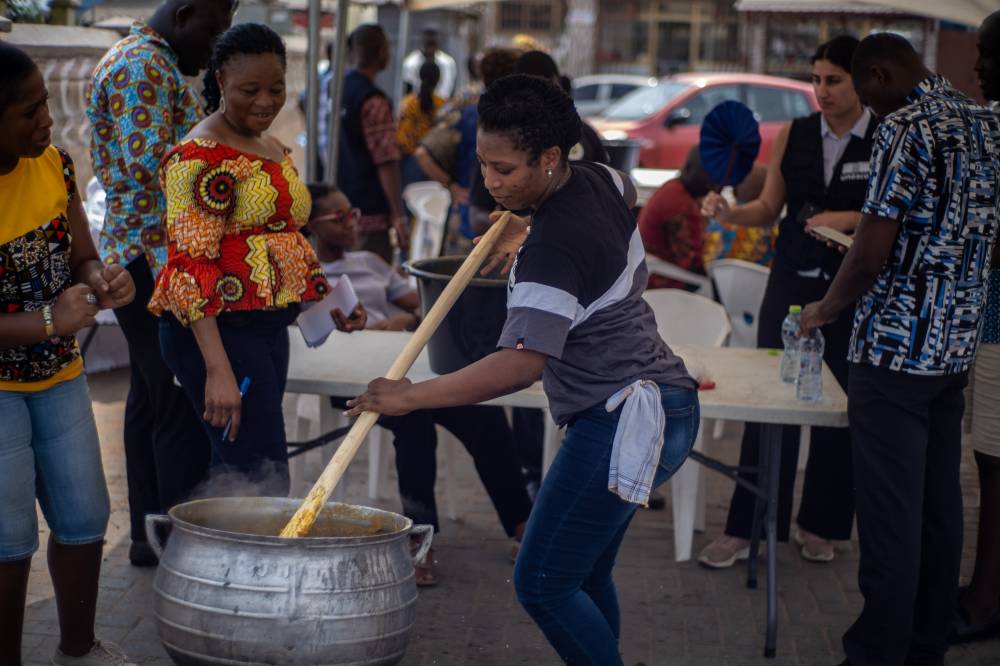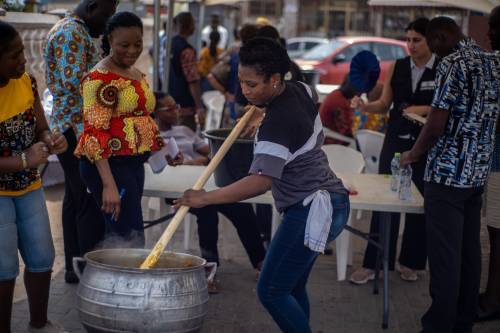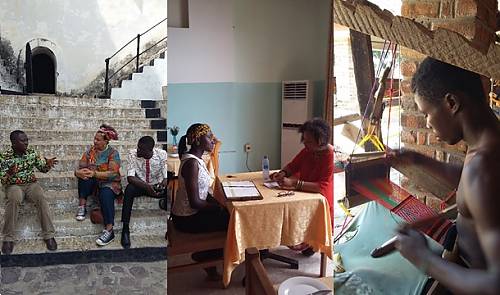Ghana stepped up its efforts to safeguard living heritage with the creation of the first National Register of Intangible Cultural Heritage. Activities to enhance cross-sector collaboration among communities and national authorities aimed to integrate living heritage into development programmes.
In 2018, UNESCO and national authorities conducted a needs assessment to identify risks and threats to the viability of intangible cultural heritage in Ghana. Consequently, a project was designed to develop national capacities to safeguard this heritage and to enhance strategic inter-agency and inter-ministerial collaboration across sectors to integrate intangible cultural heritage into development programmes.
Concluded in May 2024, the two-year project entitled ‘Capacity building for safeguarding intangible cultural heritage and contributing to sustainable development’, funded by an earmarked contribution to the Intangible Cultural Heritage Fund from France, sought to raise global awareness about intangible cultural heritage. Media engagement played a crucial role, with interviews, TV show discussions and news coverage on various platforms and diverse media networks, significantly boosting public awareness. In parallel, capacity-building activities enhanced cross-sector collaboration, engaging diverse stakeholders, which comprised living heritage communities from 8 selected border districts, and national authorities from diverse sectors, including culture, Chieftaincy and religious affairs, education, tourism, traditional medicine, private sector and forestry.
Among the project’s major outcomes, a community-based inventory identified over 94 living heritage elements across the selected border districts, with the active involvement of 16 communities. This effort laid the groundwork for the establishment of a network to support policymaking related to intangible cultural heritage and the creation of the first National Register of Intangible Cultural Heritage of Ghana.
Moving forward, in September 2024, the World Heritage Volunteers Initiative in collaboration with national institutions will implement an outreach project aimed at sensitising and transmitting traditional and Indigenous knowledge systems to younger generations. This initiative aims to enhance synergies between tangible and intangible cultural heritage, support the safeguarding of the living heritage and biodiversity of the Asante Traditional Buildings, while also contributing to the development of sustainable tourism.
More about
Proyecto:
-
Capacity-building for safeguarding intangible cultural heritage and contributing to sustainable development (1 de diciembre de 2021 – 1 de enero de 2025)



